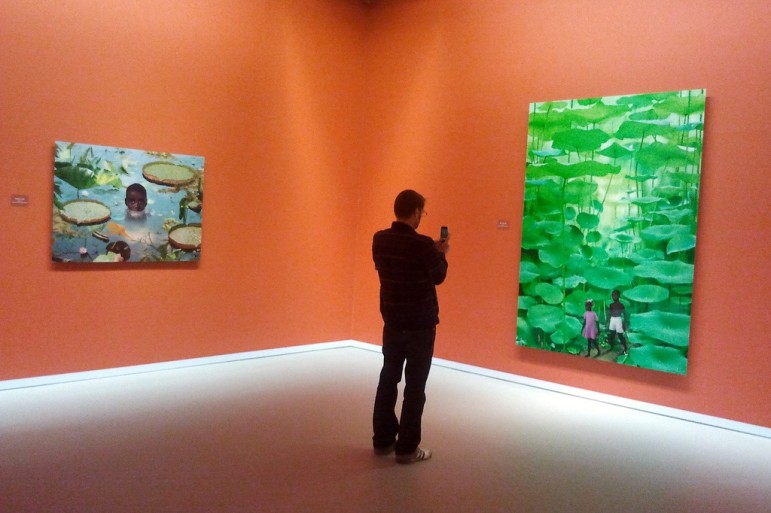
August 25, 2015; New York Times, “ArtsBeat” and WBUR (NPR Boston)
In London, ten top museums have partnered to introduce #MuseumInstaSwap, a social media campaign to highlight the relationship between the collections held at each institution. #MuseumInstaSwap began on Monday, August 24th, and runs through Friday, August 28. At that point, museum visitors will be encouraged to join in the fun and share their own pictures from London’s museums.
After agreeing to participate and seeking Instagram’s public relations support, each of the institutions met and picked their partner’s name out of a hat. The Science Museum and Design Museum are partners, and have been posting photos of each other’s collections. The Design Museum posted a photo of a visitor looking at a dozen different phones on display at the Science Museum, and noted the relationship between design and scientific development. Similarly, the British Museum dove into the Imperial War Museum’s photo archives only to find that the British Museum was used as a Prisoners of War Information Bureau during World War I. The post got plenty of engagement—more than 4000 likes and dozens of comments.
Sign up for our free newsletters
Subscribe to NPQ's newsletters to have our top stories delivered directly to your inbox.
By signing up, you agree to our privacy policy and terms of use, and to receive messages from NPQ and our partners.
On the other side of the pond, Radio Boston host Megan Chakrabarti interviewed two curators from Boston about the growing popularity of online arts and museum collections. Katie Getchell, from the Museum of Fine Arts Boston (MFA), was in full support of increasing online access to cultural artifacts. She noted that the Boston MFA saw 1.2 million visitors at their physical location in 2014, but 5 million explored the collection virtually. Dan Byers, a curator at the Institute of Contemporary Art Boston, was another guest on the episode. He emphasized the importance of maintaining an accessible collection. Both Getchell and Byers noted that, while it is preferable to view an artwork in person, it is not affordable or achievable for many people in the world. Having the chance to explore art online opens up learning opportunities for those living outside of major metropolitan areas or without the funds necessary to travel.
Byers, whose focus is on contemporary art, grew increasingly enthusiastic about the possibility of a positive feedback loop occurring when contemporary artists view collections online. Much of today’s art is being created and then shared online via social media, rather than more traditional routes such as art school or galleries. Aspiring artists may view museum and gallery exhibits online and, inspired by what they have seen, create a new piece of art to share with the world. Is there a worthier mission for a contemporary art gallery?—Maggie Hodge Kwan













